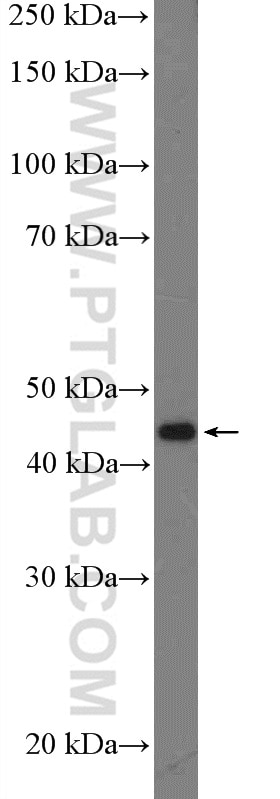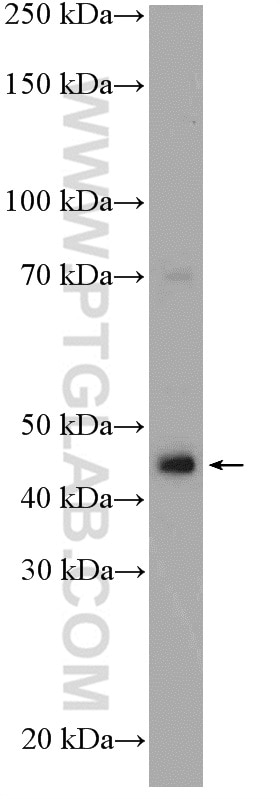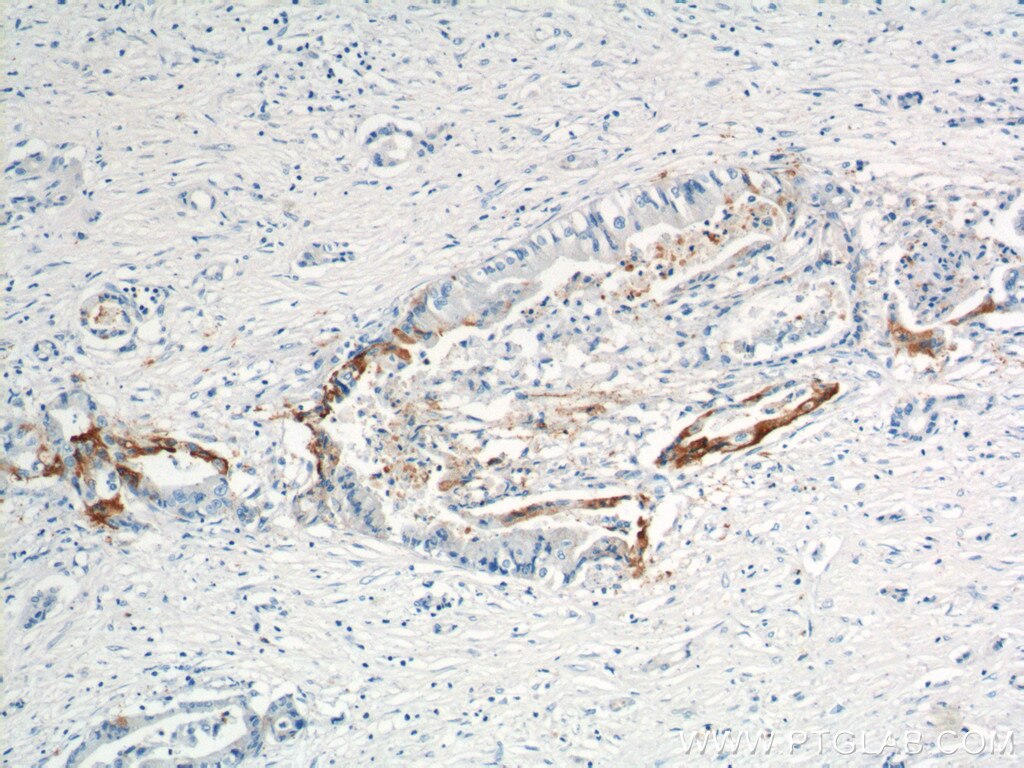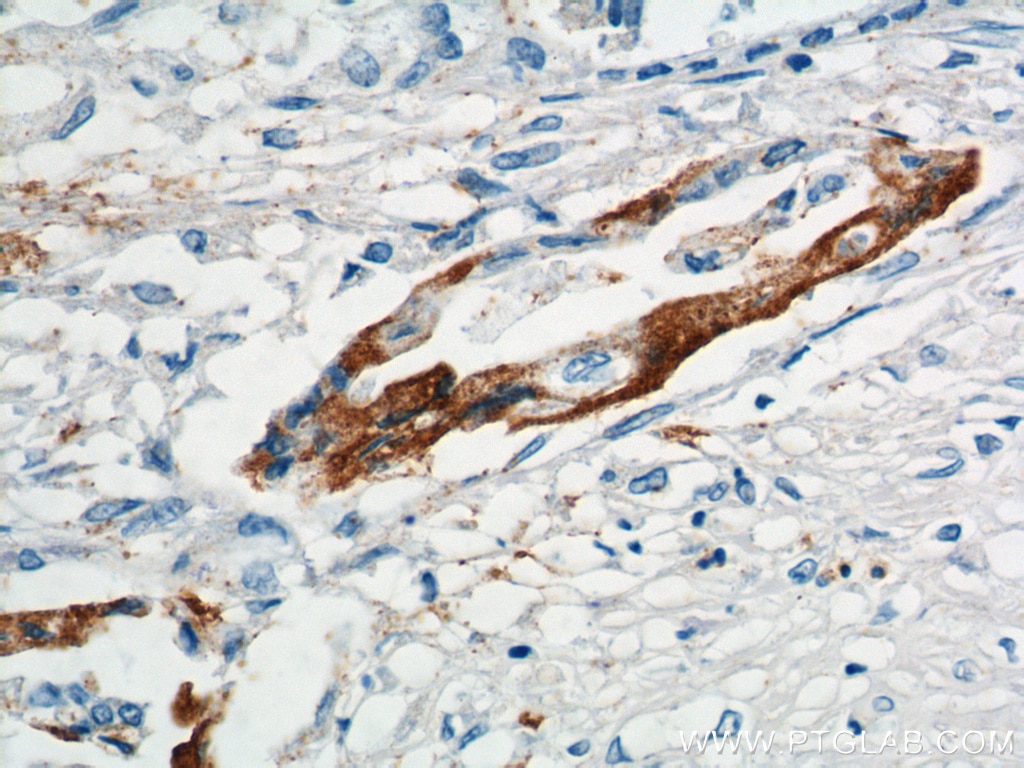Tested Applications
| Positive WB detected in | mouse pancreas tissue, MCF-7 cells |
| Positive IHC detected in | human pancreas cancer tissue Note: suggested antigen retrieval with TE buffer pH 9.0; (*) Alternatively, antigen retrieval may be performed with citrate buffer pH 6.0 |
Recommended dilution
| Application | Dilution |
|---|---|
| Western Blot (WB) | WB : 1:500-1:1000 |
| Immunohistochemistry (IHC) | IHC : 1:50-1:400 |
| It is recommended that this reagent should be titrated in each testing system to obtain optimal results. | |
| Sample-dependent, Check data in validation data gallery. | |
Product Information
12830-1-AP targets XK in WB, IHC, ELISA applications and shows reactivity with human, mouse, rat samples.
| Tested Reactivity | human, mouse, rat |
| Host / Isotype | Rabbit / IgG |
| Class | Polyclonal |
| Type | Antibody |
| Immunogen |
CatNo: Ag3550 Product name: Recombinant human XK protein Source: e coli.-derived, PGEX-4T Tag: GST Domain: 371-444 aa of BC036019 Sequence: QFFHPCKKLFSSSVSEGFQRWLRCFCWACRQQKPCEPIGKEDLQSSRDRDETPSSSKTSPEPGQFLNAEDLCSA Predict reactive species |
| Full Name | X-linked Kx blood group (McLeod syndrome) |
| Calculated Molecular Weight | 444 aa, 51 kDa |
| Observed Molecular Weight | 45-51 kDa |
| GenBank Accession Number | BC036019 |
| Gene Symbol | XK |
| Gene ID (NCBI) | 7504 |
| RRID | AB_2877887 |
| Conjugate | Unconjugated |
| Form | Liquid |
| Purification Method | Antigen affinity purification |
| UNIPROT ID | P51811 |
| Storage Buffer | PBS with 0.02% sodium azide and 50% glycerol, pH 7.3. |
| Storage Conditions | Store at -20°C. Stable for one year after shipment. Aliquoting is unnecessary for -20oC storage. 20ul sizes contain 0.1% BSA. |
Background Information
XK, also named as XKR1 and XRG1, is responsible for the Kx blood group system. XK forms a functional complex with the Kell glycoprotein. It represents a crucial factor for the maintenance of normal muscle structure and function.
Protocols
| Product Specific Protocols | |
|---|---|
| IHC protocol for XK antibody 12830-1-AP | Download protocol |
| WB protocol for XK antibody 12830-1-AP | Download protocol |
| Standard Protocols | |
|---|---|
| Click here to view our Standard Protocols |










